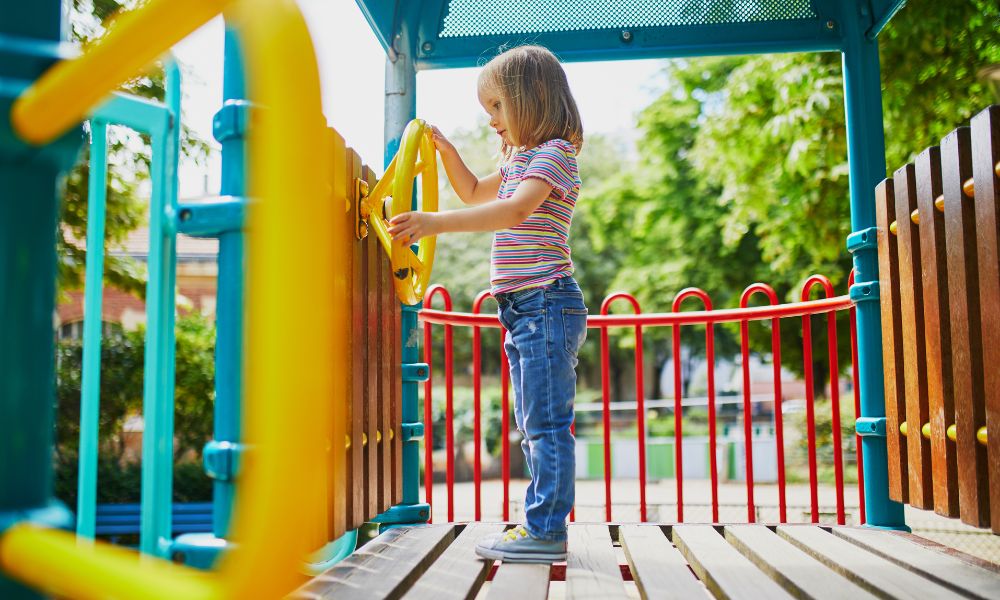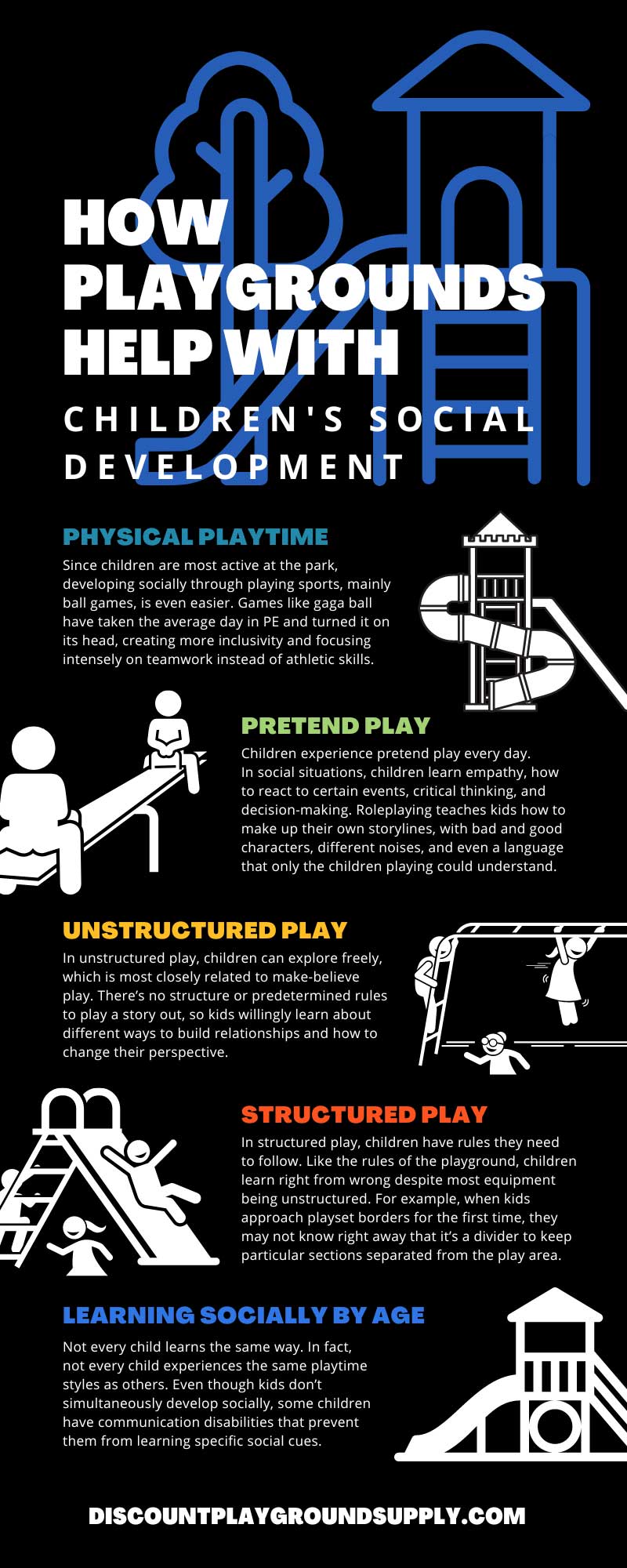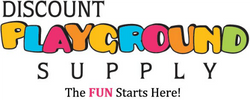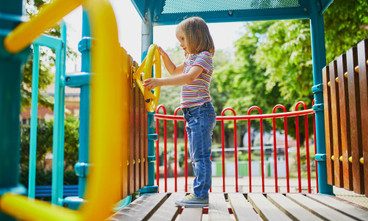
Plenty of activities, games, and playground equipment lean toward encouraging and helping children develop in new, innovative ways. One way a child’s social development can blossom is by playing on public and school playgrounds. Take a pause today to learn how playing on playgrounds can help with your childrens’ social development.
Physical Playtime
Throughout the day, children find themselves playing for more than fun—they’re doing it to learn boundaries, make friends, and experience their first exposure to social cues. On the playground, children meet kids of all ages and abilities, and through physical playtime, they learn about challenging one another, self-control, and empathy.
Since children are most active at the park, developing socially through playing sports, mainly ball games, is even easier. Games like gaga ball have taken the average day in PE and turned it on its head, creating more inclusivity and focusing intensely on teamwork instead of athletic skills.
Ball Games
Ball games teach kids about coordination—they learn where and when to move to the next base, and how to think on their feet. Even if struck out of a game, kids learn to think critically for next time, and they know to use their best abilities to make playing ball fun.
Fun ball games that are inclusive and instill positive social growth include the following:
- Gaga ball
- Kickball
- Soccer
- Baseball
- Basketball
- Volleyball
Pretend Play
Children experience pretend play every day. In social situations, children learn empathy, how to react to certain events, critical thinking, and decision-making. Roleplaying teaches kids how to make up their own storylines, with bad and good characters, different noises, and even a language that only the children playing could understand.
Children learn to share and communicate in ways that they hadn’t before. Pretend play is mainly explored from preschool to, at least, elementary—between fifth and the sixth grade. While kids learn different social skills, they also have equipment that helps make pretend play better.
Swings
The swings are a fun addition to the park, but they make an excellent choice for imaginary play and social development. Kids use the swings to pretend to fly or cross a bridge if playing a game like “the floor’s lava.” The swings add great ways for kids to be more inventive with their storytelling skills.
Some children might use the swings to pretend they’re steering a flying ship to get to a cloud in the sky so they can battle the angry giant. Whichever form the pretend play takes, children learn to negotiate and understand other perspectives when using their imagination.
Unstructured Play
Despite make-believe play and physical play narrating the social situations for children, there are two other forms of play kids learn on the playground and in school: unstructured and structured play. Both styles present new challenges for kids to take on and learn from to better understand the world around them.
In unstructured play, children can explore freely, which is most closely related to make-believe play. There’s no structure or predetermined rules to play a story out, so kids willingly learn about different ways to build relationships and how to change their perspective.
Structured Play
In structured play, children have rules they need to follow. Like the rules of the playground, children learn right from wrong despite most equipment being unstructured. For example, when kids approach playset borders for the first time, they may not know right away that it’s a divider to keep particular sections separated from the play area. Kids learn from each other that certain parts are off-limits, such as certain play areas and buildings.
Through the use of playground borders, children also learn boundaries in personable relationships, including how to respond to situations such as sharing with another child, or letting someone know they don’t want to do something. These activities help kids learn societal rules in ways they can understand so they know how to respond to similar situations in the future.
Learning Socially by Age
Not every child learns the same way. In fact, not every child experiences the same playtime styles as others. Even though kids don’t simultaneously develop socially, some children have communication disabilities that prevent them from learning specific social cues. Aside from these limitations, teaching kids how to socialize with others of different abilities is still essential. Doing so encourages open-mindedness and patience in any social situation.
On the playground, kids meet others of different ages and abilities, and with inclusive play, they learn to develop in newer ways. Kids can’t blossom in social situations by being excluded from others; they need to learn at their pace and be involved in playtime with other kids.
The Best Playground Structures For Social Development
Play structures encourage loads of playtime, and better ways to develop socially. The two best play structures for kids are climbing and overhead equipment. Both playsets foster children’s learning in new ways and make it innovative and fun.
Climbing Equipment
When using climbing equipment, such as a rock wall, kids encourage, race, and even support each other by teaching one another how to use the equipment. Kids practice their social skills by communicating. The communication could involve asking questions like where they need to position their feet and how to pull themselves up.
Overhead Equipment
Overhead equipment, such as a set of monkey bars, encourages children to take turns crossing the bars either by hanging or swinging. This equipment develops a child’s motor skills and helps them plan their next move, also called motor planning.
Playtime is more than just fun for kids; and enhancing the playground can help you work with your kids to develop socially in new ways.
The playground offers many ways for children to develop into the best versions of themselves. As for school administrators, they can enhance their playgrounds even more by installing new playground equipment and performing maintenance checks daily. With Discount Playground Supply, you can get precisely what you need to build a better playground for your school. Browse our online store today!


